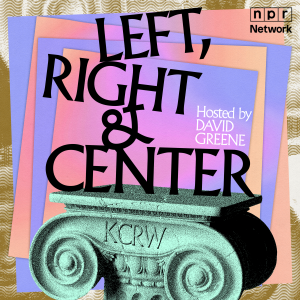Natalia Montes was a teenager living in Florida when Travyon Martin was killed. She says his picture reminded her of her classmates, “It could have happened to any one of us.”
The Trayvon Martin shooting, as well as subsequent high profile police shootings and the emergence of the Black Lives Matter movement, sparked an interest in Natalia for trying to understand one of the most difficult elements of human psychology: implicit bias.
Natalia calls implicit bias “the cognitive monster.” And she says it lives inside all of us; this unconscious, unintentional prejudice that works against our best efforts to be egalitarian. Natalia says this cognitive monster is especially dangerous for police officers, because they’re more likely to perceive black and brown people as threatening. She, like many social scientists, believes that implicit bias is at the root of police shootings of unarmed black and brown civilians. This was especially apparent to Natalia during the trial of Darren Wilson, the police officer who killed Michael Brown in 2014. Wilson described Brown this way, “He looked up at me and had the most intense aggressive face... it looks like a demon, that's how angry he looked.”
Natalia studied psychology and philosophy at the University of Washington, and as an undergrad, she worked for the Center for the Science of Social Connection. Part of her job was to research implicit bias displayed by people trying their best not to be racist. One of the ways Natalia and her colleagues measured bias was the Implicit Association Test. The IAT is designed to measure the association people have between concepts (e.g. black people, white people) and evaluations (e.g. “good”, “bad”). The IAT is the most common way that implicit bias is measured, though it has come under scrutiny in recent years.
As an undergrad, Natalia came across a study out of Oxford University. The intention of the study was to see if implicit bias could be treated with medication. The researchers administered the IAT to 36 participants. After the implicit and explicit bias of each participant was measured, half of the subjects were given a beta blocker called propranolol. Beta blockers are a common kind of blood pressure medication that block the effects of adrenaline. They can also be an effective treatment for anxiety. The results of the study showed that the participants given beta blockers displayed lower levels of implicit bias.
Reading this study gave Natalia an idea: if medication could have this kind of effect on implicit bias, perhaps it should be administered to police officers. The implications are still theoretical, but Natalia argues that police officers are required to meet a level of physical fitness, so mandating officers take these drugs would ensure their moral fitness as well.
Natalia wrote about her idea in a 2017 essay, and won an award from the International Neuroethics Society. A year later, she was approached by another philosopher, Paul Tubig, to expand her idea into a longer paper. As of 2020, the two are preparing to submit their paper for publication, and have presented their essay at the Northwest Philosophy Conference.
Producer: Bethany Denton
Editor: Jeff Emtman
Music: The Black Spot and Phantom Fauna
More Episodes
HBM106: Beautiful Stories about Dead Animals (part 2)
 2018-11-21
2018-11-21
HBM105: Beautiful Stories about Dead Animals (part 1)
 2018-11-07
2018-11-07
HBM104: Scrapheap Reactor
 2018-10-24
2018-10-24
HBM103: Fate's Notebook
 2018-10-10
2018-10-10
HBM102: Breath Holder
 2018-09-26
2018-09-26
HBM101: Much Corruption
 2018-09-12
2018-09-12
HBM100: Faraway Minds
 2018-06-06
2018-06-06
HBM099: Spell for the Repulsion of Astral Vampires
 2018-05-23
2018-05-23
HBM098: Feed the Queen
 2018-05-09
2018-05-09
HBM097: Fox Teeth
 2018-04-25
2018-04-25
HBM096: Are We Still Afraid?
 2018-04-11
2018-04-11
HBM095: The Bats that Stay
 2018-03-28
2018-03-28
HBM094: The Fatigue of Violence
 2018-03-14
2018-03-14
HBM093: The Brain Scoop
 2018-03-01
2018-03-01
HBM092: Carry the Scent
 2018-02-14
2018-02-14
HBM091: Hypnosis of Hunger
 2018-01-31
2018-01-31
HBM090: Two Small Creatures with Human Eyes
 2018-01-17
2018-01-17
HBM089: Human Wish Tree
 2018-01-03
2018-01-03
HBM088: Riptides and a Sinking Ship
 2017-12-20
2017-12-20
HBM087: Trifle Not with Sacred Things
 2017-12-07
2017-12-07
Create your
podcast in
minutes
- Full-featured podcast site
- Unlimited storage and bandwidth
- Comprehensive podcast stats
- Distribute to Apple Podcasts, Spotify, and more
- Make money with your podcast
It is Free
You may also like

Left, Right & Center


Bookworm


Design and Architecture


All the Presidents’ Lawyers


Nocturne


- Privacy Policy
- Cookie Policy
- Terms of Use
- Consent Preferences
- Copyright © 2015-2024 Podbean.com




 iOS
iOS Android
Android